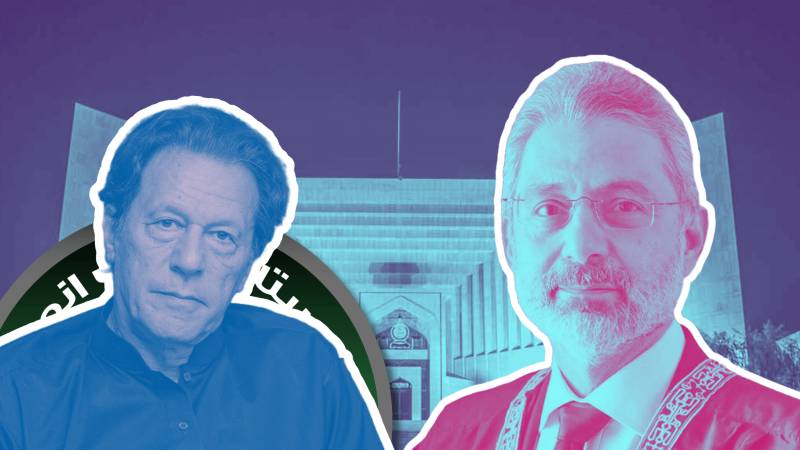
With the spectre of threats still looming, questions are being asked whether Pakistan Tehreek-e-Insaf (PTI) founder and prime petitioner Imran Khan would appear before the court to attend hearings next week on the National Accountability Bureau (NAB) amendments case in the top court.
The former prime minister has been incarcerated in the Adiala Jail, serving time for multiple convictions including in the cipher case and the Toshakhana scandal.
Reports suggest that the former prime minister Imran, being the prime petitioner, has expressed his desire to appear before the top court.
In October 2023, while hearing the case, a five-judge bench of the Supreme Court, headed by Chief Justice Qazi Faez Isa, had directed the superintendent of Adiala Jail to make arrangements to ensure Imran Khan's appearance before the court if he intends to appear in the case.
Before adjourning further hearings, the top court had directed to deliver a copy of the order to the PTI founder and serve a notice to him through the jail's superintendent.
It is unclear will be interesting to see how does the five-judge bench, headed by Chief Justice Isa, would treat court proceedings if Imran appears in court and the manner in which he is presented. Usually convicts are presented in court with shackles. Moreover, it will be interesting to see how CJP Isa handles proceedings if Imran decides not to appear in court.
Sources, however, believe that the possibility of Imran making a court appearance for the case hearing are slim given the security threats cited by the government and from the PTI.
The federal government's intra-court appeal (ICA) against the majority judgement declaring amendments to the National Accountability Ordinance (NAO) 2002, as illegal, has been fixed for hearing on May 14. after more than six months.
Apart from CJP Isa, other members of the larger bench include Justice Aminuddin Khan, Justice Jamal Khan Mandokhail, Justice Athar Minallah and Justice Syed Hasan Azhar Rizvi.
The bench had last heard the matter on October 31, 2023.
In its order, the court had asked the accountability courts to proceed with their trials but restrained them from announcing final verdicts.
Former prime minister Imran Khan had challenged the amendments to the National Accountability Bureau (NAB) law.
The apex court, by a majority of 2-1, had declared the amendments to NAO 2000 as unconstitutional. It had ordered the reopening of all corruption cases worth less than Rs500 million that were previously closed against political leaders from various parties and public office holders.
Furthermore, the apex court had directed NAB to return all case records to the relevant courts within seven days.
Justice Syed Mansoor Ali Shah had dissented against the majority judgement.
Later, the federal government, through Makhdoom Ali Khan, had challenged the majority order.
The larger bench, in its short order, had ordered its office to send copies of government appeals to Imran Khan.
"The incarcerated respondent be served through the concerned Jail
Superintendent and be provided copies of the appeals, and if he wants to be represented, the Jail Superintendent should do the needful," the last order said.

